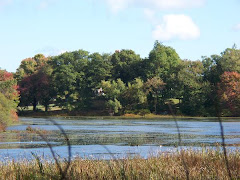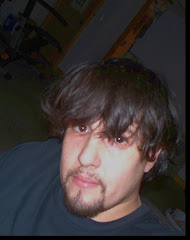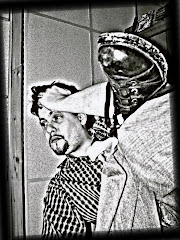 Yesterday my son and I were talking in the kitchen. He was discouraged and saddened by our dilemma, the direction the course of our lives has suddenly taken, and all the obstacles that seem to be placed before us, as though we are somehow cursed. Within the past couple of months, I've been diagnosed with breast cancer, and soon I'll have major surgery with intensive adjuvant postoperative therapy. This event by itself impacts the dynamics of our living situation as a family unit caring for my 94-year-old mother. It's quite possible that she will need to be placed in a nursing home for an indefinite time because of my inability to care for her.
Yesterday my son and I were talking in the kitchen. He was discouraged and saddened by our dilemma, the direction the course of our lives has suddenly taken, and all the obstacles that seem to be placed before us, as though we are somehow cursed. Within the past couple of months, I've been diagnosed with breast cancer, and soon I'll have major surgery with intensive adjuvant postoperative therapy. This event by itself impacts the dynamics of our living situation as a family unit caring for my 94-year-old mother. It's quite possible that she will need to be placed in a nursing home for an indefinite time because of my inability to care for her.
For years we have gone against the cultural grain, America's solution for taking care of the elderly. Despite the professionals' advice from all corners, we've persevered and taken excellent care of her at home. The rewards far outweigh the inconveniences.
She delights in hearing her grandson talk so passionately about politics, animal rights, his dreams of becoming a broadcaster or photojournalist, football, baseball, old time radio....she listens, and laughs heartily because he's hilarious and witty. When he's not looking at her, she shakes her head and wipes the corner of her eye. She tells me, "I just love that young man. He's so smart. And so handsome."
When Chiefy sits in her lap, and she's gently patting him, he eventually cradles his chin on her arm and often falls asleep to the humming sounds of the chatter around him. She loves my cooking, my coffee, and everything I try to do for her. Some mornings when she barely makes it down the hallway, rolling her walker into the kitchen, her face lights up when she smells the coffee and knows that she has another day on this earth with her family. God has blessed her with wonderfully good health, almost pain-free every day except for morning stiffness.
She is so content sitting at the kitchen table, watching Jim, Chiefy and I, or looking out the window at a cardinal visiting the railing on the porch. When we're in our separate rooms, she's happily reading her books, still sitting at the table, waiting for us to reconvene for 3:00 coffee and cake, a tradition we've kept going for the past six years.
Jim came to me later in the day, and urged me to think again about what we should do. He reminded me of how people in the old country take care of their elderly. "They do not have nursing homes; they all live together until the parents die." He encouraged me to think about keeping her here while I'm getting surgery. When I come home (with tubes and drains and very weak), maybe the VNA could take care of me, and we could step up my mom's PCA visits.
I was thinking about it seriously, and asking the Lord to please help me with this, when my sister called. She also has breast cancer, although hers is metastatic to the bones, and lung and brain. We had a wonderful conversation about her end of life issues, her fears, and what she would like to do from now until that time. We both agreed that she's not "there yet" and should be thinking about today because she's feeling quite well, and tolerating her treatments without any serious toxic side effects.
Then a brief pause. I was looking out the window and watching a swan flying by the island, and it was as though an angel were flying. I could not speak because my voice would give me away. My eyes were filling up quickly with tears, and I could sense that hers were, too, but she is strong and mellow, and much older than I am. She suddenly asked me, "Have you had second thoughts about what to do with Mom?" I was astonished. Where did that come from? It didn't take me long to realize it was the Lord's doing, simply by opening up the discussion and listening to what she had to say. She affirmed without knowing what Jim suggested. Isn't that how the Lord works? He answers prayer, and affirms through others, and also in his Word.
Yesterday, I talked to Jim about "fighting the good fight", not looking at the obstacles you've already overcome, but running the race and concentrating on the prize, the finish line. When you come across the hurdles along the way, they'll be easier to jump over, because you want to finish the race to the end.
Today I was reading the Bible, specifically the second letter of Paul to Timothy.
"But you, be sober in all things, endure hardship... I have fought the good fight, I have finished the course, I have kept the faith."
 The island was barely visible during the storm. The geese and mallards had taken shelter hours earlier when the sun was still brilliant on this crisp January afternoon. They always know when and how to prepare for a storm. One lone goose lagged considerably behind the rest, and finally flew close to the island, honking loudly and following the sounds of their honking to guide him safely. I long for their instinct. A storm unlike any other I've seen is just ahead of me, and as much as I've braced myself for it emotionally, there are many things to do before I find myself in the midst of the turbulence, ill-prepared after the mastectomies and the long painful path to recovery. I'm terrified that I'm as blind and lost as that lone goose.
The island was barely visible during the storm. The geese and mallards had taken shelter hours earlier when the sun was still brilliant on this crisp January afternoon. They always know when and how to prepare for a storm. One lone goose lagged considerably behind the rest, and finally flew close to the island, honking loudly and following the sounds of their honking to guide him safely. I long for their instinct. A storm unlike any other I've seen is just ahead of me, and as much as I've braced myself for it emotionally, there are many things to do before I find myself in the midst of the turbulence, ill-prepared after the mastectomies and the long painful path to recovery. I'm terrified that I'm as blind and lost as that lone goose.




















